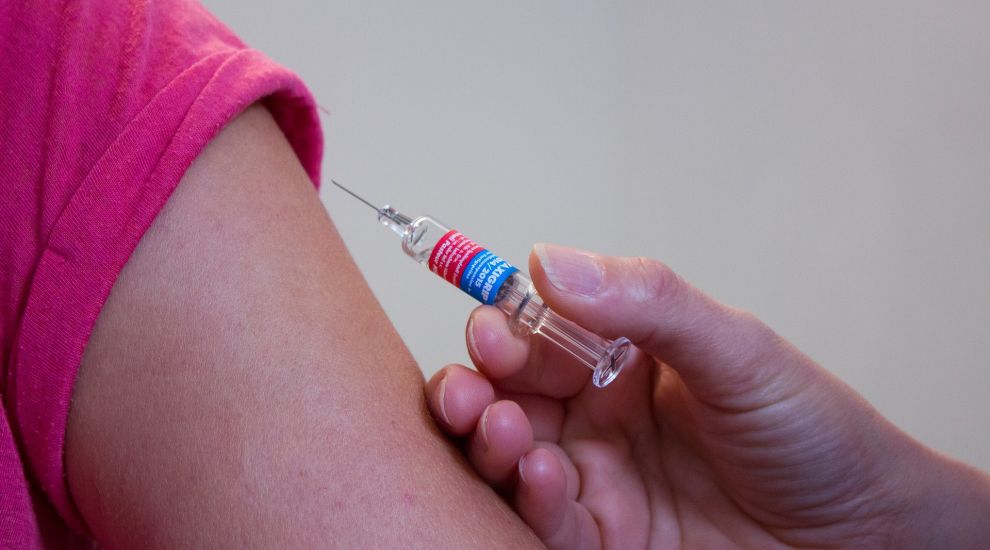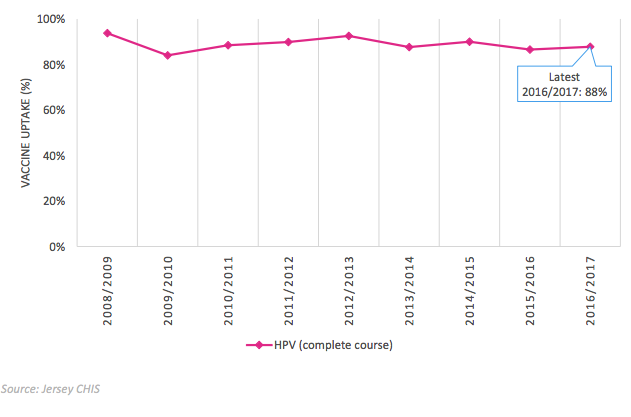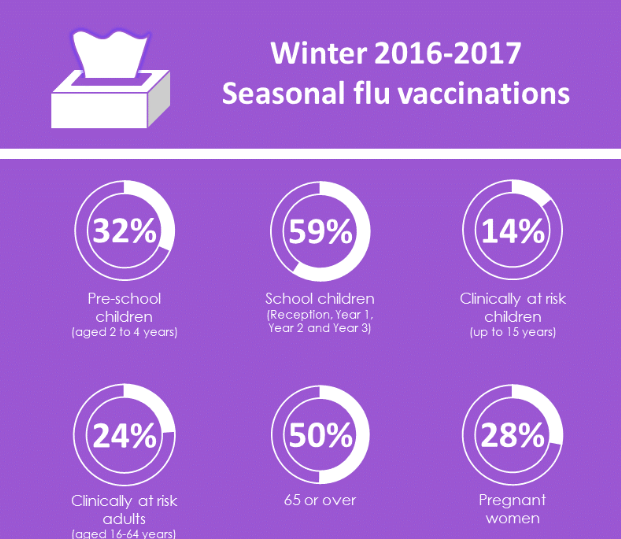

97% of children under the age of five received the first dose of MMR (measles, mumps and rubella) vaccine in 2016, above the World Health Organization’s target of 95%, the latest statistics in Jersey show.
Vaccination rates were also high among local babies as 96% of them were vaccinated against potentially life-threatening diseases such as whooping cough, diphtheria and tetanus in their first year in 2016.
Statistics show that the uptake is slightly lower among teenagers. Only 93% received the Td/IPV booster immunisation which completes the course of childhood vaccines, providing protection against tetanus, diphtheria and polio. 94% of Year 9 pupils received the recommended MenACWY vaccine to protect them against meningococcal bacteria strains that can cause meningitis and septicaemia.
The latest report also indicates that the number of girls receiving immunisation against the human papillomavirus (HPV) is remaining constant. 88% of girls in Year 8 received the two doses of the HPV vaccine, a figure is similar to the average uptake rate since the programme began in 2008, 89%.

Pictured: Annual HPV vaccine uptake rates by academic year
Vaccination uptake is however not as good among older members of the population. Only about two thirds of Islanders who reached the age of 70 in 2016 had a shingles vaccine to minimise their chances of suffering from the painful condition. Only 47% of people aged 65 and over received the pneumococcal polysaccharide vaccine (PPV) which protects against serious and potentially fatal pneumococcal infections.
Dr Linda Diggle, Head of Preventive Programmes, said: “On the whole, uptake rates of vaccinations in Jersey compare favourably with those of the UK. It’s evident from the figures that our population recognises the importance of prevention being better than cure.”
As for the seasonal flu vaccine, uptake varied depending on the age of the patient. Half of those aged 65 or over registered with a GP received a seasonal flu vaccination, while around 1 in 3 pre-school children aged 2 to 4 years, 1 in 4 pregnant women and 1 in 4 of those deemed at clinical risk aged 16 to 64 also received a vaccination.

To improve the uptake the Health and Social Security Department recently decided to increase accessibility for the vulnerable groups. Local pharmacists are now offering flu vaccinations, enabling pregnant women, adults with a long-term medical condition and people aged 65 or over to get the flu injection for £10 at their surgery or local pharmacy. After half term, nurses will also be going into primary schools to offer the nasal flu vaccine to all primary school year groups.
Dr Diggle said: “In 2016, we recognised that we needed to do more to make it easier for vulnerable groups of people to get vaccinated against flu. Pregnant women, adults with a long-term medical condition and people aged 65 or over are the groups most at risk of complications and/or being hospitalised if they catch flu. Pre-school age and primary school age children are also more vulnerable, with children under five more likely to be admitted to hospital with flu than any other age group.
“GPs and nurseries have worked with us during 2017 to make it easier for working parents to get their 2, 3 or 4 year olds protected at their child’s nursery with a nasal flu vaccine. Instead of parents having to take time off work to get to the surgery, GPs are instead going into nurseries.”
Further information about the flu vaccination can be found online. Information about all the vaccination programmes in Jersey can be found on the health and wellbeing pages.
Comments
Comments on this story express the views of the commentator only, not Bailiwick Publishing. We are unable to guarantee the accuracy of any of those comments.